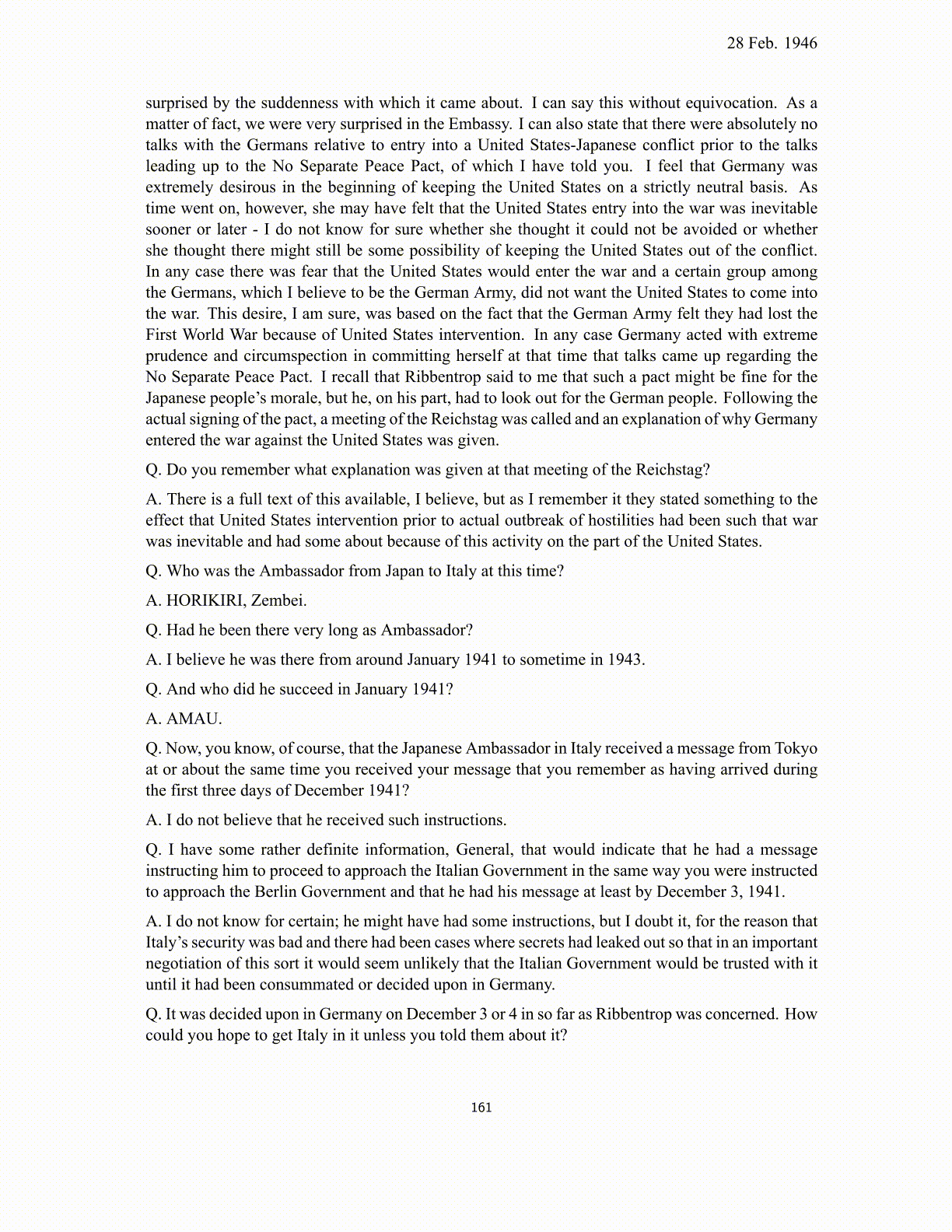
28 Feb. 1946 surprised by the suddenness with which it came about. I can say this without equivocation. As a matter of fact, we were very surprised in the Embassy. I can also state that there were absolutely no talks with the Germans relative to entry into a United States-Japanese conflict prior to the talks leading up to the No Separate Peace Pact, of which I have told you. I feel that Germany was extremely desirous in the beginning of keeping the United States on a strictly neutral basis. As time went on, however, she may have felt that the United States entry into the war was inevitable sooner or later - I do not know for sure whether she thought it could not be avoided or whether she thought there might still be some possibility of keeping the United States out of the conflict. In any case there was fear that the United States would enter the war and a certain group among the Germans, which I believe to be the German Army, did not want the United States to come into the war. This desire, I am sure, was based on the fact that the German Army felt they had lost the First World War because of United States intervention. In any case Germany acted with extreme prudence and circumspection in committing herself at that time that talks came up regarding the No Separate Peace Pact. I recall that Ribbentrop said to me that such a pact might be fine for the Japanese people’s morale, but he, on his part, had to look out for the German people. Following the actual signing of the pact, a meeting of the Reichstag was called and an explanation of why Germany entered the war against the United States was given. Q. Do you remember what explanation was given at that meeting of the Reichstag? A. There is a full text of this available, I believe, but as I remember it they stated something to the effect that United States intervention prior to actual outbreak of hostilities had been such that war was inevitable and had some about because of this activity on the part of the United States. Q. Who was the Ambassador from Japan to Italy at this time? A. HORIKIRI, Zembei. Q. Had he been there very long as Ambassador? A. I believe he was there from around January 1941 to sometime in 1943. Q. And who did he succeed in January 1941? A. AMAU. Q. Now, you know, of course, that the Japanese Ambassador in Italy received a message from Tokyo at or about the same time you received your message that you remember as having arrived during the first three days of December 1941? A. I do not believe that he received such instructions. Q. I have some rather definite information, General, that would indicate that he had a message instructing him to proceed to approach the Italian Government in the same way you were instructed to approach the Berlin Government and that he had his message at least by December 3, 1941. A. I do not know for certain; he might have had some instructions, but I doubt it, for the reason that Italy’s security was bad and there had been cases where secrets had leaked out so that in an important negotiation of this sort it would seem unlikely that the Italian Government would be trusted with it until it had been consummated or decided upon in Germany. Q. It was decided upon in Germany on December 3 or 4 in so far as Ribbentrop was concerned. How could you hope to get Italy in it unless you told them about it? 161